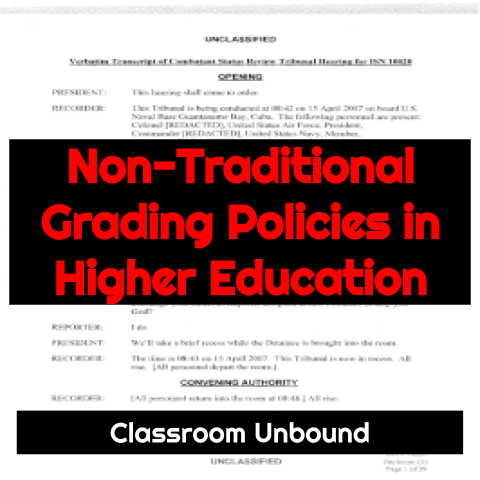|
Experiential learning resources for the innovative educator
Happy college season! For some, that season is long over, having completed early applications over the summer. Phew! Now all you have to do is wait! For some, you're still trying to get everything figured out. Preparing application materials for deadlines, considering a gap-year. Maybe even wondering if college is for you at all. I get that. I've been there! College is truthfully not for some in my opinion. You do you!
There is a lot to consider when choosing your path. If the path you have chosen is to go to college, your job isn't over yet. You still need to find a great fit. There are a lot of variables to consider, such as tuition, financial aid and scholarships, location, academic programs, and acceptance rates. If you're interested in exploring college options, check out this FREE college search activity that helps you determine what you are looking for in a college experience, and which schools will best provide that experience.
And if weighing those basic options wasn't challenging enough, colleges also differ in how they're grading student work. In fact, some colleges are not grading at all. No A-F grading system, no failing, no GPA. Some schools do this to mitigate the pressure of grades; to measure learning based on student-performance, quality of work, and growth; and/or to provide detailed feedback on student work to foster the desire to improve.
This post isn't about which assessment method is better. It is about providing information and alternatives. It is up to you to determine which method is the best for you. Consider your learning style, interests, past experience, and goals moving forward. I've compiled a list of colleges and universities in the United States that offer alternatives to the traditional A-F grading system. Check them out, and who knows, maybe this is just what you need? Note: this list is not exhaustive. I'm sure there are others. Do your research. If you have a particular school in mind, but wonder about their assessment approach, find out! Narrative Reports - a narrative report is a detailed, written evaluation by the professor on student work and progress. It often times is the entirety of the student's transcript. The purpose of this is to provide important feedback and opportunity for growth. Some schools provide grades with the narrative, but is typically the choice of the student. The following colleges provide narratives on transcripts. Colleges with Alternative Grading Methods to the Traditional A-F Approach:
ePortfolios - many colleges and universities have turned to ePortfolios rather than letter grades. ePortfolios are online portfolios where students submit evidence of learning. The portfolio can then be shared online.
No fail grading systems - some schools have eliminated failing grades entirely along with GPA's. Transcripts usually include alternatives to the A-F grading system along with narratives.
What's interesting about this is that there is a huge range. It's not just super-progressive schools that have taken on new methods of student grading. It's private and public, ivy-league and community colleges, traditional and progressive. They're all great schools trying to do what is best for the students. So don't think you can't consider a school that doesn't offer a failing grade. There are no rules! Do what is right for you. To figure that out you may have to do some soul-searching. Happy hunting, and good luck!! Observe. Question. Explore. Share.
0 Comments
Your comment will be posted after it is approved.
Leave a Reply. |
Blog IntentTo provide innovative educational resources for educators, parents, and students, that go beyond lecture and worksheets. AuthorSara Segar, experiential life-science educator and advisor, curriculum writer, and mother of two. Categories
All
|






 RSS Feed
RSS Feed